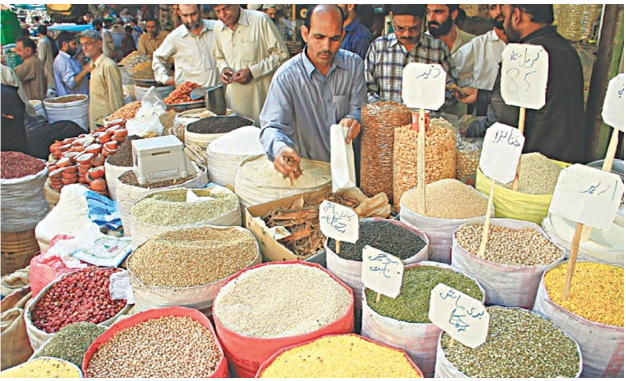i INP-WEALTHPK
Ahmed Khan Malik
The price control system in Sindh has come under renewed scrutiny as consumers continue to face overpricing and profiteering despite the presence of laws, committees, and monitoring mechanisms meant to regulate the cost of essential commodities. Experts and citizens alike are calling for a comprehensive overhaul to make the system more effective and transparent.
Sindh’s current price regulation framework operates under the Sindh Essential Commodities Price Control and Prevention of Profiteering and Hoarding Act, 2005, and the Sindh Consumer Protection Act, 2014. These laws require shopkeepers to display official price lists and sell goods at government-notified rates. However, in practice, violations are widespread across markets in Karachi, Hyderabad, Sukkur, and other parts of interior Sindh.
In many grocery and fruit shops, prices are neither displayed nor adhered to. Several retailers fail to exhibit official rate lists or charge well above approved rates. Consumers have expressed concern over the infrequency of market inspections and the lack of response to their complaints.
To address the issue, the Sindh government has established district price monitoring committees, chaired by commissioners and deputy commissioners, tasked with conducting surprise inspections and penalizing violators. During Ramadan and other high-demand seasons, “Bachat Bazaars” are also organized to provide goods at controlled prices.
Despite these measures, enforcement remains weak. Retailers routinely ignore government-issued price lists, while inspectors often lack manpower and authority to take decisive action. Moreover, consumer courts and complaint councils set up under the Consumer Protection Act remain inactive in several districts due to limited resources and low public awareness.
Officials have acknowledged that while the Bureau of Supply and Prices issues updated price lists regularly, ensuring compliance across thousands of shops remains a formidable challenge. Small fines are typically imposed on violators, but these penalties rarely serve as a deterrent. Consumer rights advocates and economists are now urging major reforms.
Mustafa Mahmood, Secretary of the Karachi Consumers Protection Forum, proposed empowering inspectors with magisterial powers to fine or seal shops on the spot. He also recommended introducing digital monitoring tools, such as mobile applications through which citizens could instantly report overpricing incidents.
He further suggested stricter penalties for repeat offenders and hoarders, along with year-round inspections instead of short-lived seasonal crackdowns. Public awareness campaigns, he said, were equally vital to help citizens identify official prices and file complaints effectively. Nadeem Memon, an economic analyst, emphasized the need for stronger coordination between the Bureau of Supply and Prices, district administrations, and consumer courts to ensure timely action.
He noted that Sindh’s price control system, though well-intentioned, has so far failed to protect consumers from exploitation. “The laws exist, but implementation remains weak,” he said. “Unless monitoring is modernized, fines are increased, and inspections are made consistent, citizens will continue to suffer from unchecked overpricing in markets across the province.”

Credit: INP-WealthPk





